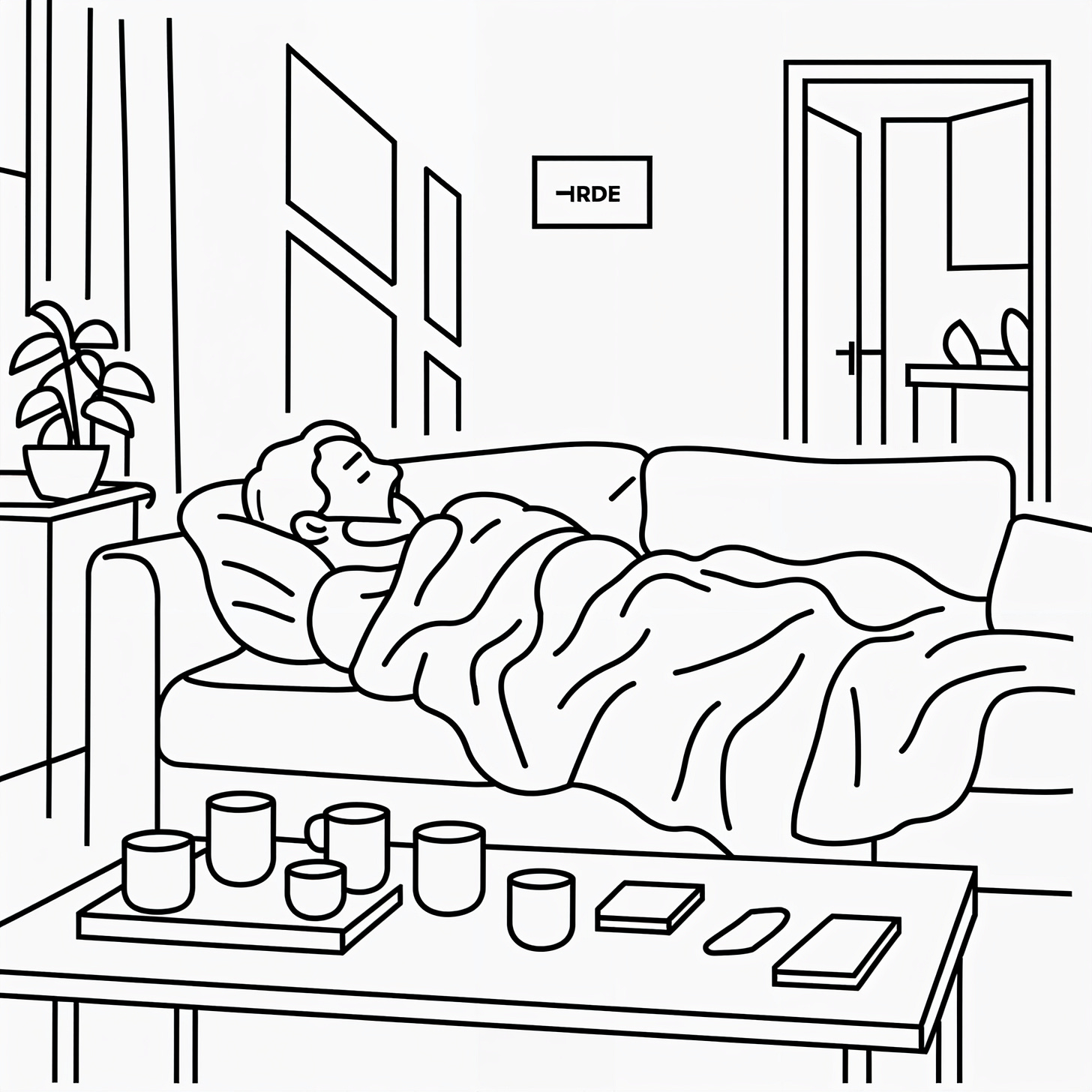1-37: Traveling Travesties
How Do I Turn the Shower On?
After a long day of travel, I woke up on my friend’s couch, surprisingly well-rested but reluctant to start the day. I lay there in “bed” a while longer not because I want to, but because I don’t exactly know how I’m going to get ready for the day. I’m unsure where to find a towel, whether I should shower before my host, or if there’s even a coffee machine, and the list goes on. Have you ever traveled somewhere and stayed in bed longer simply because you didn’t know how to start your day? I can’t imagine I’m the only person to have this experience. This is a particularly difficult topic to put into words, so I am hopeful you’ve had similar experiences.
Similar to 'Analysis Paralysis,' which arises from too many choices, this state of paralysis seems driven by heightened friction and additional morning decisions. Depending upon your personality, you may embrace this friction and uncertainty, or even seek it, or you may avoid circumstances like these at all costs. Staying at a hotel, for instance, is normally straightforward, but there is still some amount of added friction in creating a “morning routine” that might only last for two or three days. That morning routine will forever be forgotten, until of course, you stay at the same hotel again. Even when you stay at the same hotel, it will almost certainly be in a different room and you will undoubtedly have to seek out the outlets, figure out how to shut the blinds, operate the thermostat, and play light switch roulette to turn off the last light. This unfamiliarity might seem trivial, but the accumulation of these small uncertainties can quickly become daunting.
At first, I thought that additional friction exponentially increased the difficulty of starting your day, or at least multiplied it. It turns out that they are simply additive, but that is more than enough to make these five or ten seemingly mundane and simple morning tasks feel like you are about to hike a steep mountain. The additive nature of these frictional items is simple: for each additional item that you are solving for, you are likely to stay in bed for five more minutes (where the number of minutes is dependent upon your personality and how much you embrace or despise this friction). Practically put, if you already know all the steps to shower and all you are missing is the coffee machine component, you are much more likely to get out of bed (or couch) and get on with your day, solving for said coffee component once you are fully clothed and awake.
I’ve only recently realized that this state of paralysis can be cured, or at least lessened through a change in mindset and perspective. This friction, as much as I truly despise it most of the time, should be wholeheartedly embraced. The reward upon successfully conquering this friction is equivalent to its level of difficulty (see essay on the balance of life). While this is easier said than done, I am making it a point to get out of bed, stand on my two feet, and face these decisions head-on rather than stay in bed a minute longer. Understand that you can only solve for so much: You will almost never be able to create a perfectly pre-planned morning routine at each destination you visit.
While a certain amount of these frictional decisions can be solved by having a quality host, who educates you on how to operate their weird shower, the reality is that you will have to solve some or most of them yourself. So the next time you wake up on an unfamiliar couch or bed, wondering how to navigate the morning, remember that facing these small frictions is a part of the adventure.


